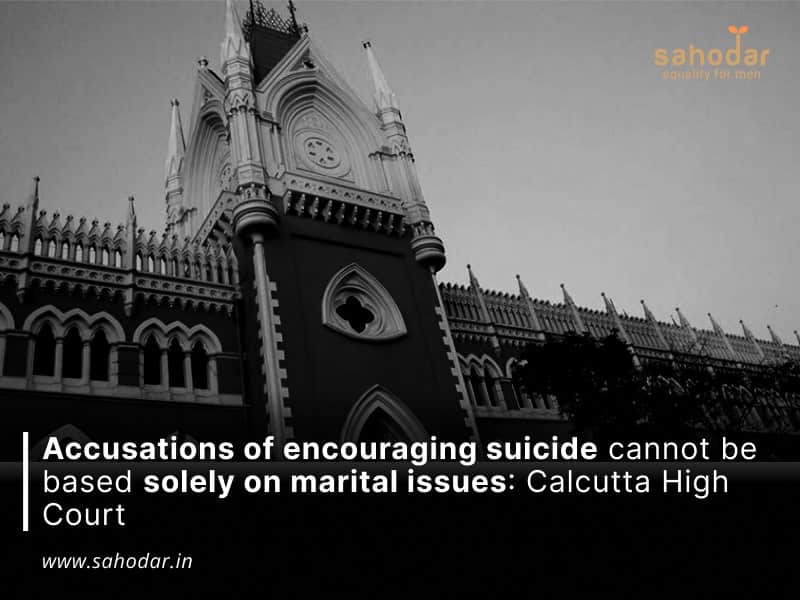The Calcutta High Court’s single-judge Justice Rai Chattopadhyay acquitted a man and his mother of abetting the suicide of the man’s wife and subjecting her to dowry-related harassment.
In the case (Goutam Gope vs State of West Bengal) it was held that the mere existence of marital discord between a husband and wife could not be a sufficient basis for holding the husband accountable for encouraging his wife’s suicide.
Therefore, Justice Rai Chattopadhyay acquitted the man and his mother, who had been convicted by a trial court of abetting suicide (under Section 306 of the Indian Penal Code) and cruelty (under Section 498A of the Indian Penal Code) against the wife.
In the case of Goutam Gope vs State of West Bengal, the Calcutta High Court held that for an accusation under Section 498A of the Indian Penal Code, the alleged cruelty should be severe enough to prove that it led to the victim’s suicide. However, in the case at hand, the prosecution did not provide any substantial evidence to establish the guilt of the accused.
The court pointed out that mere marital discord cannot be the sole reason to hold the husband accountable for abetting suicide. Without clear and incriminating evidence, such as specific intention, overt act, and direct incitement, matrimonial discord cannot be considered a driving force for suicide. Since the prosecution failed to establish these crucial elements, the court acquitted the accused.
Goutam Gope and his mother appealed their conviction in August 2011 for their alleged role in the death of Gope’s wife in August 2008. The wife had reportedly set herself on fire after suffering mental and physical abuse by her husband and mother-in-law over their illegal demands for furniture, a color TV, a motorbike, and cash. The trial court had convicted the appellants on the basis that they failed to save the victim and that there was no dying declaration on record. However, the appellate court found no material evidence to suggest that the appellants were responsible for driving the victim to commit suicide. The court also noted that merely having marital discord cannot be a ground for conviction of abetment of suicide. Consequently, the court acquitted the appellants of all charges.
Upon filing an appeal to the High Court following their conviction by a lower court, the convicts claimed that the death of the victim was caused by an accidental fire and that the victim’s father had filed the case as revenge for their refusal to transfer properties to the victim’s child. The High Court bench, however, rejected these arguments and pointed out that mere allegations of torture by the appellants, without evidence of direct instigation leading to suicide, cannot be considered as abetment of suicide.
According to the bench, it is now an established fact that the response of a victim to alleged actions of the accused can be influenced by the victim’s mental strength and stability. The accused cannot be held responsible unless it can be demonstrated that the victim was so oppressed that they had no other option but to commit suicide. The bench found that this was not the case in the present matter and that the trial court had erred in its evaluation of the evidence. Consequently, the conviction order was overturned.
Source: https://www.barandbench.com/news/matrimonial-discord-cannot-sole-ground-attract-offence-abetment-of-suicide-calcutta-high-court

